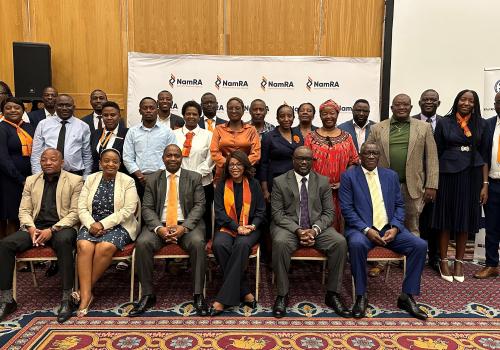SADC Boosts Support for Namibia’s Coordinated Border Management Strategy
The Southern African Development Community (SADC), in partnership with the Namibia Revenue Agency (NamRA), recently organized a workshop in Windhoek from February 29th to March 1st, 2024, aiming to bolster Namibia’s trade infrastructure and streamline border management processes.
The focal point of the gathering was the validation of Namibia’s Draft Coordinated Border Management (CBM) National Strategy.
The Namibia CBM National Strategy aims to enhance coordination among border control agencies to facilitate legitimate trade and commerce while ensuring compliance and national security. This strategy is poised to simplify trade documentation, harmonize border procedures, and introduce risk-based control measures to improve efficiency.
Ms. Victoria Weyulu, Senior Manager of Trade Facilitation at NamRA, underscored the strategic importance of the CBM Strategy in strengthening both national and regional coordination efforts. She emphasized its alignment with the Trade Facilitation Agreement, highlighting its potential to optimize trade facilitation measures.
The development of the Namibia CBM National Strategy was made possible through the assistance of the European Union (EU)-SADC Trade Facilitation Programme. Mr.
Bevan Simataa, Customs Key Expert of EU-SADC Trade Facilitation Programme, emphasized the significance of SADC CBM Guidelines in fostering cooperation and coordination among various stakeholders.
Moreover, the implementation of the CBM Strategy is expected to expedite cross-border trade, reduce transaction costs, enhance trade competitiveness, and fulfill Namibia’s commitments under international trade agreements, including the World Trade Organization (WTO) Trade Facilitation requirements.
Mr. Alcides Monteiro, Senior Programme Officer at the SADC Secretariat, highlighted the alignment of the CBM concept with the African Union’s efforts to accelerate the implementation of the African Continental Free Trade Area (AfCFTA).
The workshop brought together key stakeholders from government agencies and the private sector. Recommendations emerged from the workshop, including the development of a national policy and legislation on border cooperation, establishment of Technical Working Groups, mobilization of financial resources, and the implementation of an Electronic Single Window system, among others.



